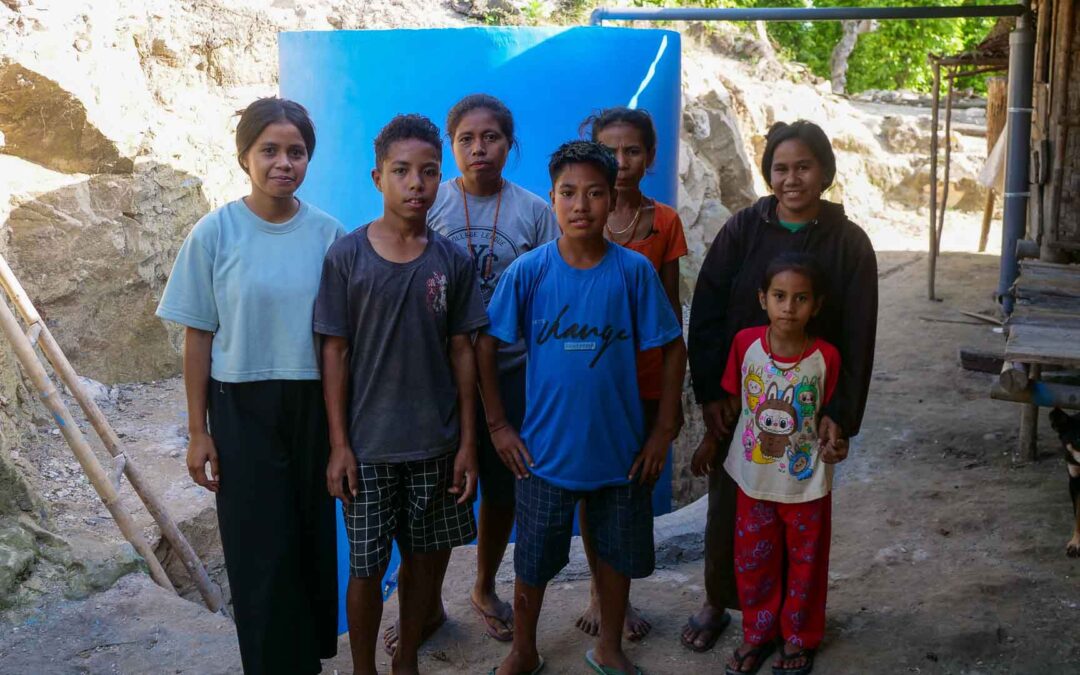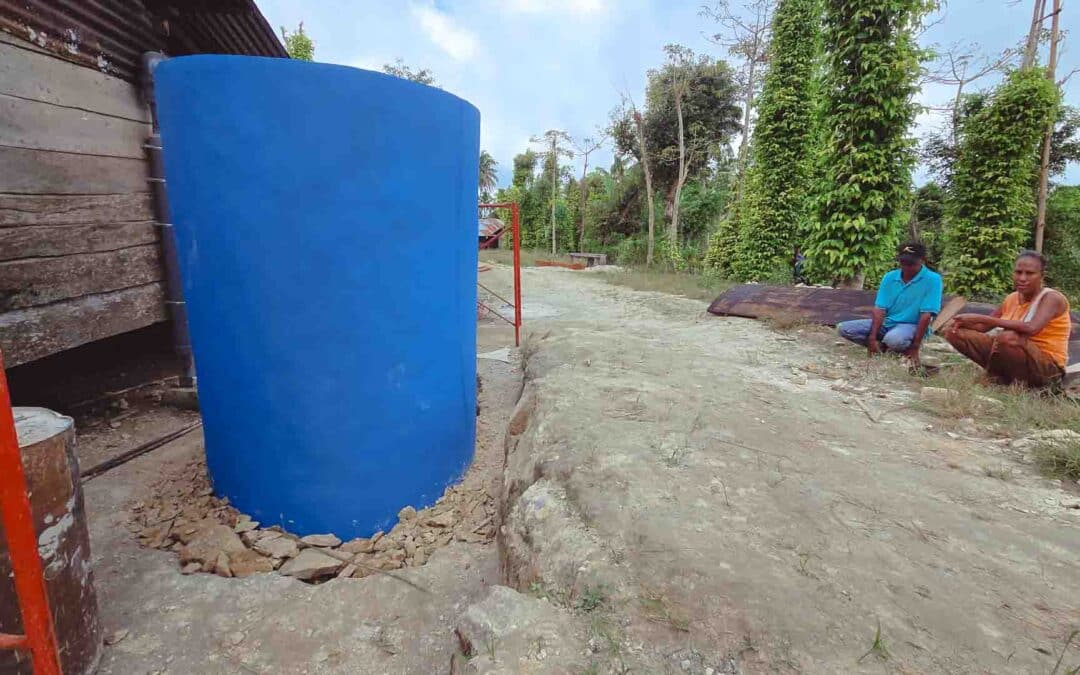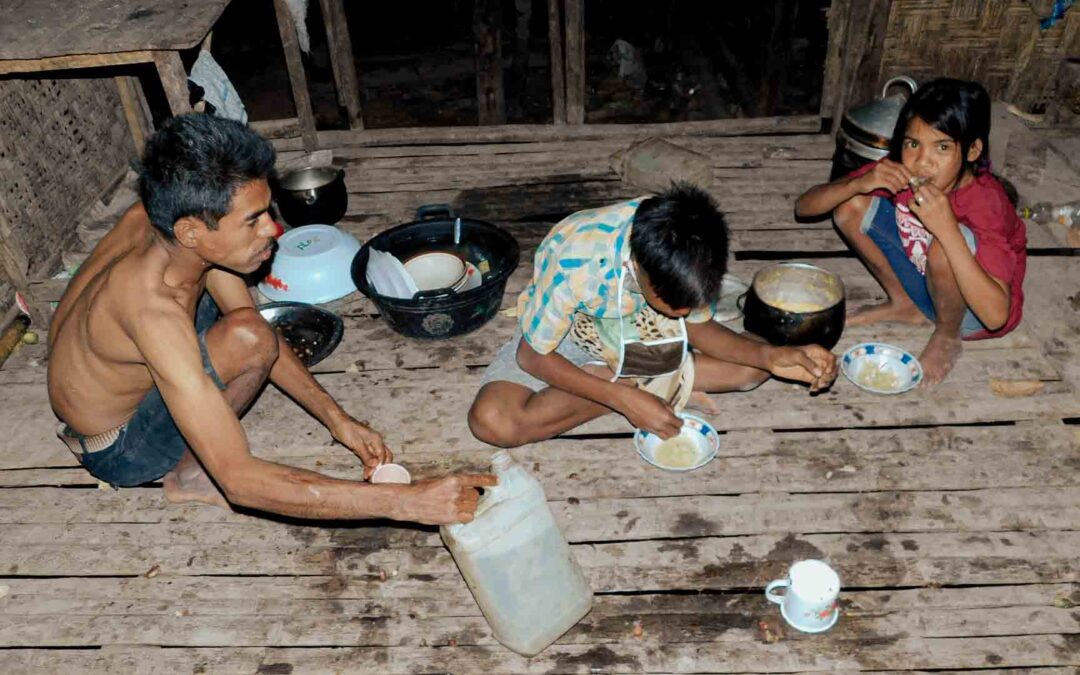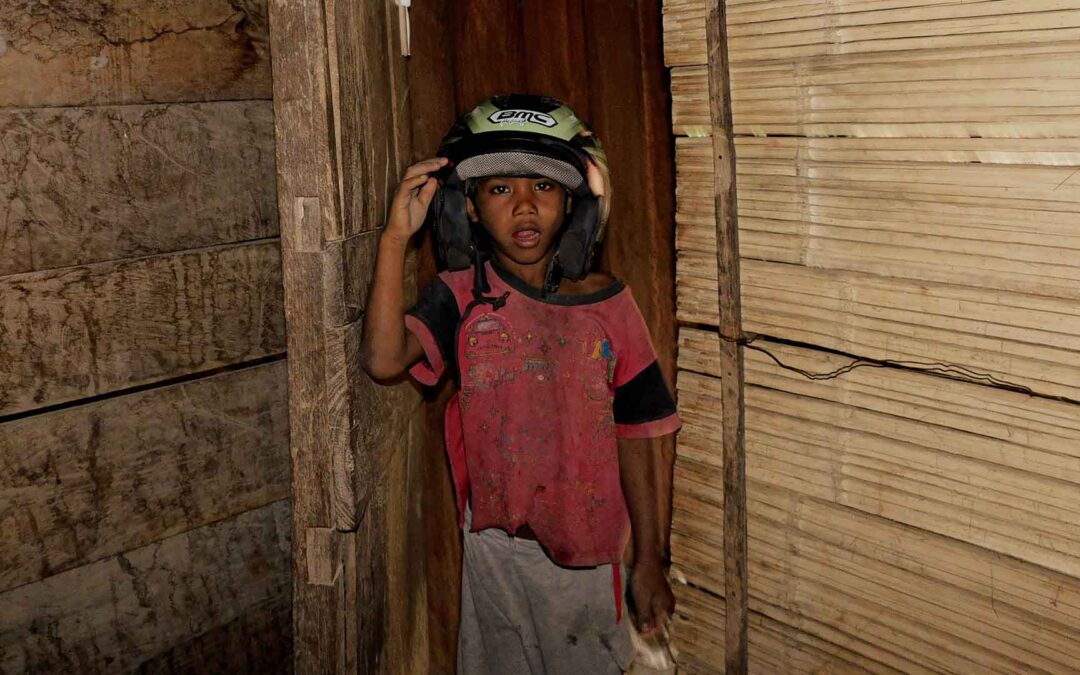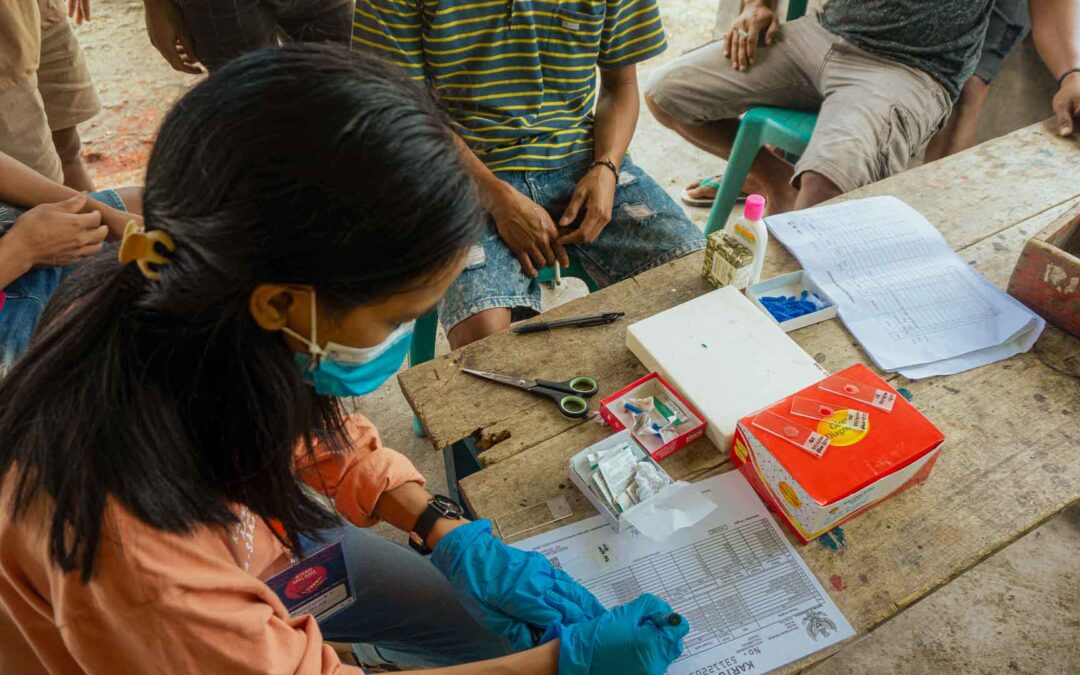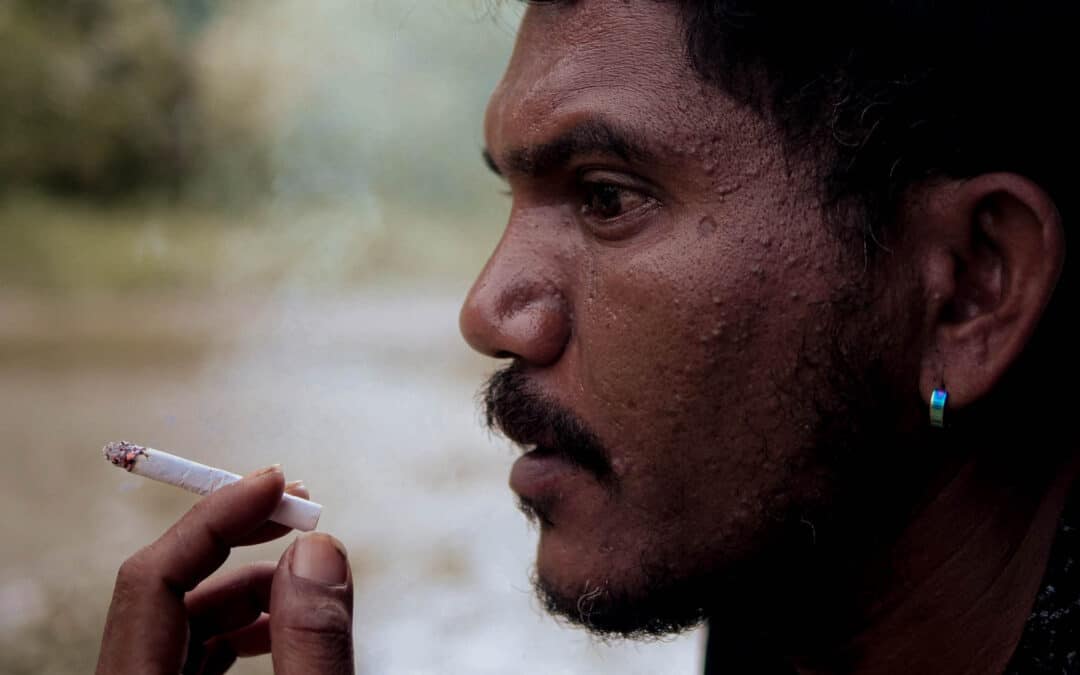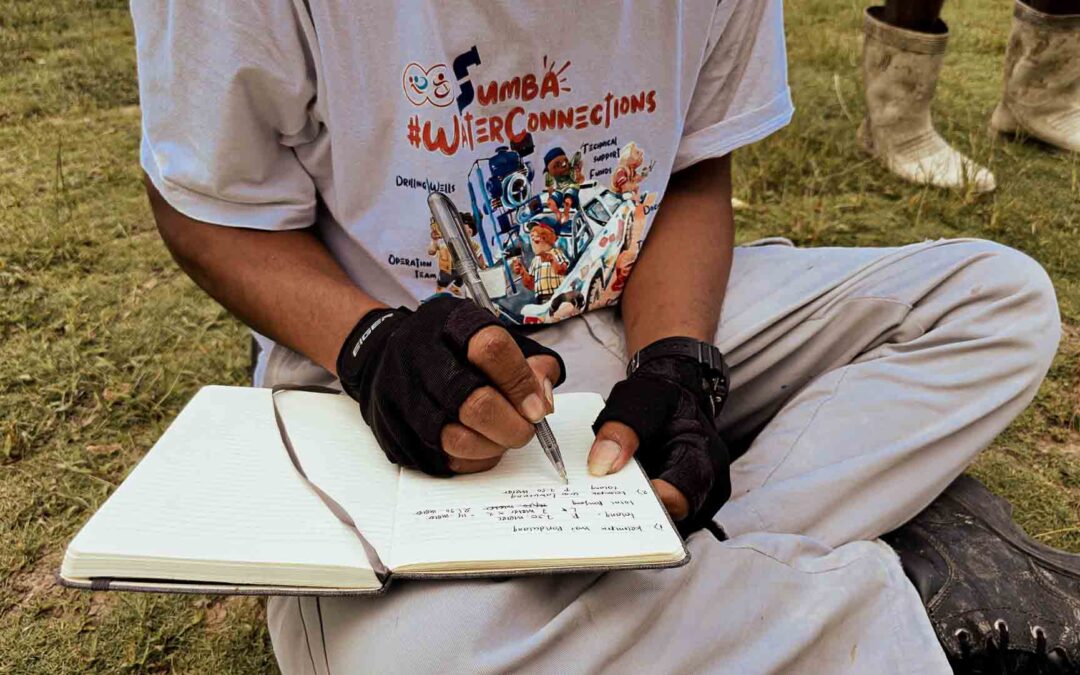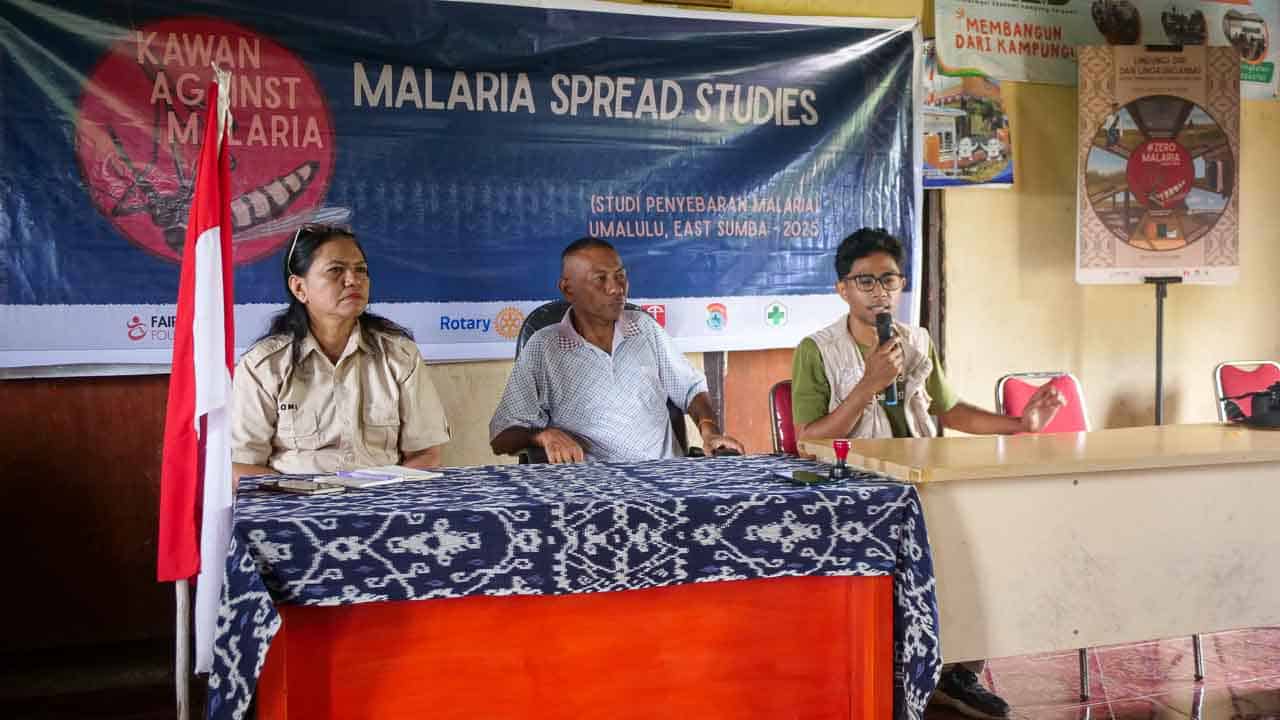Risks of Dehydration and Prevention: Fair Future’s Clean Water Solutions for Remote Rural Communities.
Basic Approaches to Identifying and Avoiding Dehydration in Vulnerable Groups, Particularly in Warm Climates.

Children in East Sumba carry heavy jerry cans of water over long distances, a stark reminder of the ongoing challenges faced by communities without direct access to clean water.
What is the reason for discussing dehydration? Dehydration is a pressing issue in the rural areas where Fair Future and Kawan Baik Indonesia operate. People work long hours in extreme heat, children travel kilometres to schools without adequate water facilities, and families struggle to find clean water. When asked about hydration, many say they drink “enough,” but for most, that means only one or two glasses a day—far below the necessary amount for such conditions.
To address this, we focus on educating communities about the importance of proper hydration and ensuring access to clean, safe water through our programs. Proper hydration is vital for survival, health, and building a better future.
Identifying Dehydration: Indicators, Risks, and Prevention Methods
Dehydration occurs when the body loses more fluid than it takes in. It impacts essential organs, slows down metabolism, and potentially leads to significant health problems.
What are the indicators to watch for? Mild dehydration might manifest as dry mouth, fatigue, thirst, or dark urine. For more severe symptoms, look out for dizziness, confusion, a rapid heartbeat, sunken eyes and fainting spells. In children, be attentive to signs like irritability, lack of tears when crying, or fewer wet diapers than usual.
“In physiology, dehydration is a condition characterized by an insufficient amount of total body water, which interferes with metabolic processes. It happens when the loss of free water surpasses its consumption and is typically caused by excessive sweating, illness, or inadequate access to drinking water.” – Alex Wettstein, CEO, Fair Future Foundation
A major concern in rural regions
In the extremely rural areas served by Fair Future and Kawan Baik Indonesia, access to clean water is scarce, posing a continuous risk of dehydration. Villagers frequently rely on remote or unsafe sources for their water needs, leading to daily struggles maintaining proper hydration.
What makes dehydration so dangerous?
Extended periods of dehydration can result in kidney stones, urinary infections, and heat-related illnesses. Chronic dehydration is even more harmful as it weakens the immune system, hinders concentration, lowers energy levels, and impacts children’s physical development. Extreme cases may lead to shock, organ failure, or death.
What is the recommended daily water intake?
To prevent dehydration, adults are advised to consume 8-10 glasses (2-2.5 liters) of water each day. Children should drink between 6 and 8 glasses (1.5-2 liters), with the exact amount depending on their age and level of activity. It’s important for everyone to increase their water intake in hot climates or during physical activities.
Avoiding dehydration
- Always keep water on hand, particularly while traveling or spending time outdoors.
- Urge children to regularly drink water, even if they aren’t feeling thirsty.
- Include fruits and vegetables, which are rich in water content, in your daily meals.
- Raise awareness about the dangers of dehydration in communities by using posters and practical demonstrations, similar to Fair Future’s initiatives in schools.
- Steer clear of sugary beverages and alcohol, as they may exacerbate dehydration.
The steps we take in practice

Children in East Sumba carry heavy jerry cans of water over long distances, a stark reminder of the ongoing challenges faced by communities without direct access to clean water.
Thanks to the Water Connections program, backed by Healthy Nutrition and educational initiatives, these children now have access to a safe water source. Our team has installed reservoirs, supplied filtration systems, and held training sessions directly in classrooms. Posters and visual aids emphasize the importance of hydration and clean water. As a result, today’s students can stay hydrated, focus better in class, and experience improved health outcomes.
The enduring impacts of persistent dehydration
Dehydration not only causes immediate discomfort but also has long-lasting effects. Persistent dehydration can impair cognitive abilities, reduce focus and the capacity to learn in educational settings, and decrease physical stamina as well as immune resilience. Over time, it may elevate the risk of developing kidney disease and cardiovascular problems.
Together, we can fight against dehydration: Water is essential for life. Through community education, improved access to clean water, and promoting sustainable practices, we can avert the harmful impacts of dehydration. Join the #WaterConnections initiative to guarantee that every child and family has access to this vital resource.
Today, November 22nd, 2024 – Alex Wettstein, Fair Future Foundation







